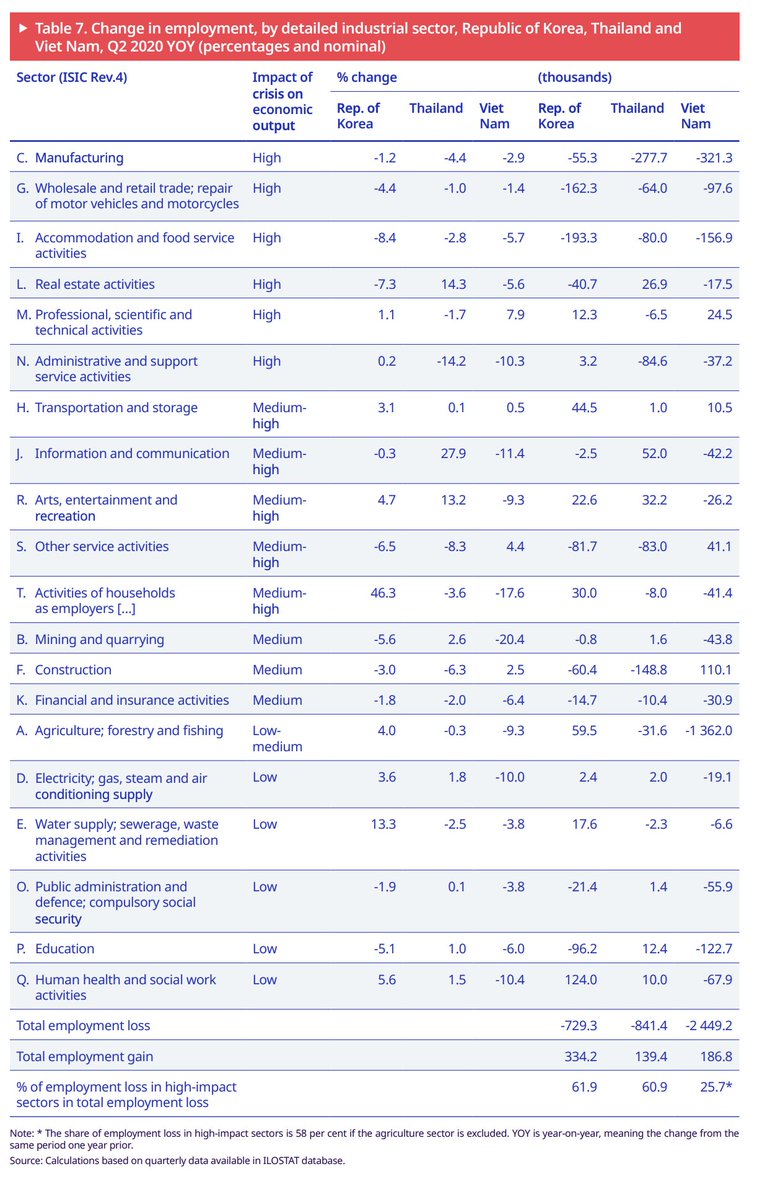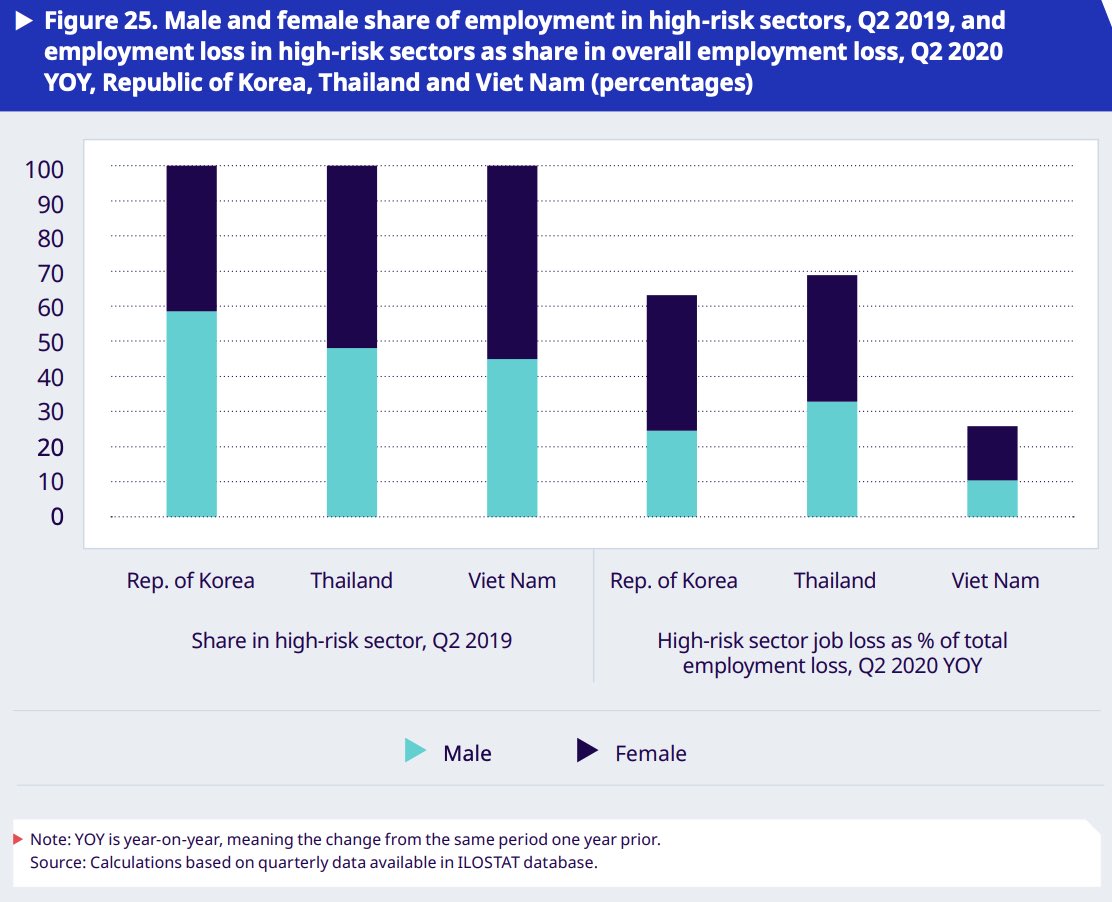This trend is global, but is the gender ratio is more/ less extreme in some places; if so, why?
Has anyone compared country variation in men's share of job losses? Is the USA exceptionally sexist?
cc @CaitlynMCollins @BuddyScarboro @leahruppanner @mdoepke https://twitter.com/CNN/status/1347671681855332354
Has anyone compared country variation in men's share of job losses? Is the USA exceptionally sexist?
cc @CaitlynMCollins @BuddyScarboro @leahruppanner @mdoepke https://twitter.com/CNN/status/1347671681855332354
For the USA, it would be fascinating to compare subnational variation.
Look at the impact of school closures and increased care work as compared to sectoral growth patterns and falling labour demand (eg in retail)? https://twitter.com/leahruppanner/status/1347850320420892674
Look at the impact of school closures and increased care work as compared to sectoral growth patterns and falling labour demand (eg in retail)? https://twitter.com/leahruppanner/status/1347850320420892674
I think this could help us understand the longer trend of falling female employment in the USA: to what extent is it driven by women’s large burden of childcare (given a measly welfare state & men not sharing the load) as compared to sectoral growth patterns?
@j_drn https://twitter.com/leahruppanner/status/1347851418330296320
@j_drn https://twitter.com/leahruppanner/status/1347851418330296320
Women accounted for 99.5% of the increase in unemployment in South Korea (just like the USA).
But curiously, the gender split was much more even in Australia, Hong Kong, Japan, Thailand & Vietnam.
What is going on?
https://www.ilo.org/wcmsp5/groups/public/---asia/---ro-bangkok/---sro-bangkok/documents/publication/wcms_764084.pdf
But curiously, the gender split was much more even in Australia, Hong Kong, Japan, Thailand & Vietnam.
What is going on?
https://www.ilo.org/wcmsp5/groups/public/---asia/---ro-bangkok/---sro-bangkok/documents/publication/wcms_764084.pdf
My prior was that female unemployment has risen largely because women predominate in badly hit sectors.
In South Korea, men account for a larger share of jobs in these high-risk sectors
Yet men are still more likely to keep their jobs.
In South Korea, men account for a larger share of jobs in these high-risk sectors
Yet men are still more likely to keep their jobs.
I should add, SK has humungous vertical gender segregation & a stonking 35% gender pay gap.
Women are employed as cheap, flexible workers, with little security or protections. Men are on the management track.
Women are much easier to fire.
Women are employed as cheap, flexible workers, with little security or protections. Men are on the management track.
Women are much easier to fire.

 Read on Twitter
Read on Twitter




